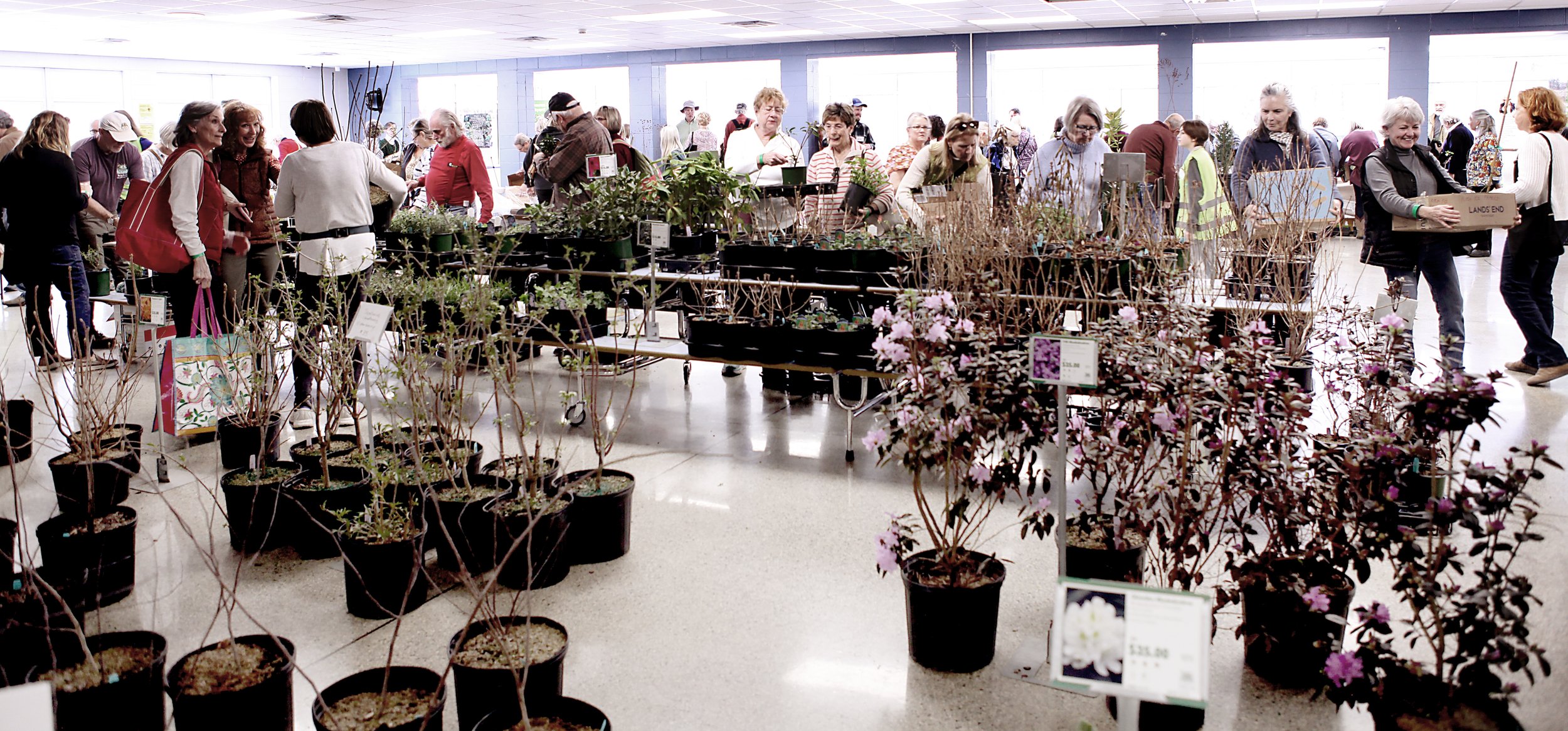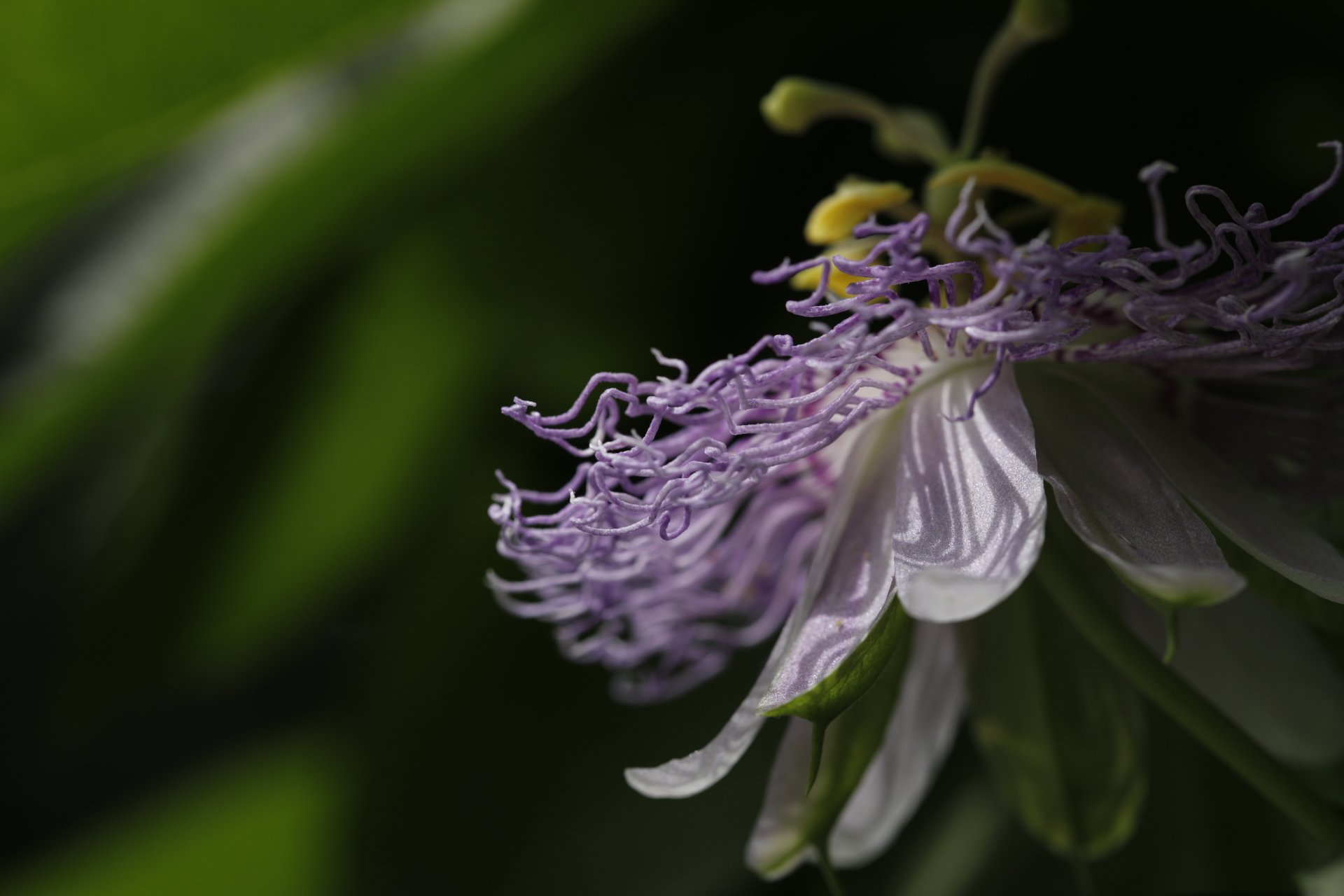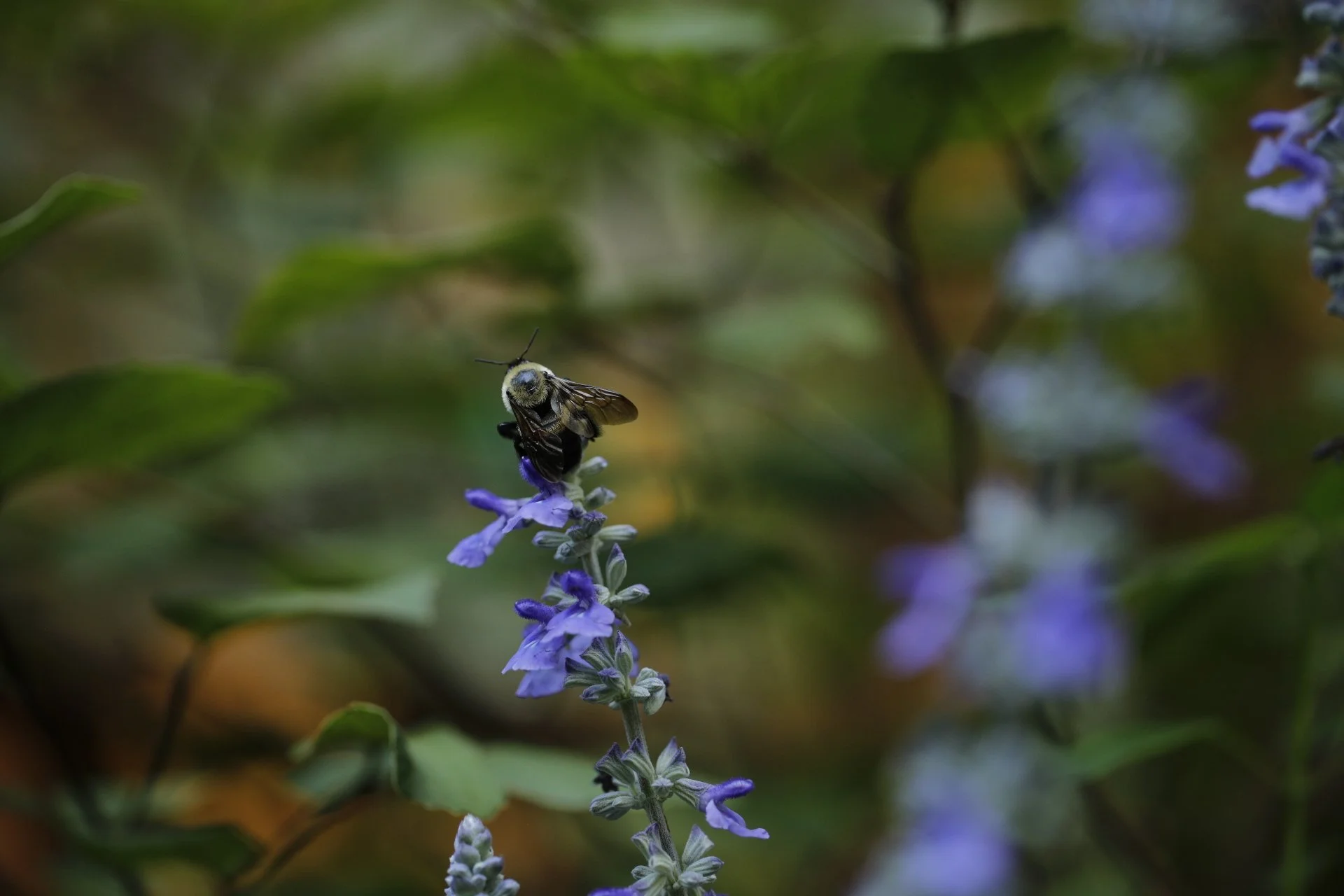Go Native at the Gardening For Life Celebration - Native Plant Sale 2024
As we write this post it is early December and most of the GFLP team have put their gardens/habitats to bed for the winter. While we might be in a bit of a gardening pause, that certainly does not stop us from studying seed and native plant catalogs and dreaming up fun spring planting projects. Tops on all of our lists in the spring is shopping and stocking up at the Native Plant Sale happening at the Gardening For Life Celebration on March 30th, 2024. This event is sure to enhance habitat for the pollinators and wildlife of the Carolina Foothills and our broader region. We are pretty proud of that!
We invite you to get to know our plant vendors for this event, who just happen to be some of the finest native plant growers in the southeast.
Flower Moon Nursery: Flower Moon joins the celebration with a diverse selection of native plants. They are also a valued Community Partner. Flower Moon Nursery is a retail and wholesale nursery specializing in deciduous azaleas native to the Southeast US. They grow and sell trees, shrubs, and perennials that are native to the Southeast or hard to find in the trade. They propagate most of their inventory, mostly from seed and cutting sources from Western North Carolina and have a strong focus on producing high quality plants.
Milkweed Meadows: Kim Bailey of Milkweed Meadows joins our event as a plant seller, an educator and a valued Community Partner. Known for her dedication to pollinator-friendly plants, Kim offers a great selection for those looking to create habitats that support bees, butterflies, and other essential pollinators. Mildweed Meadows’ selection includes a variety of native milkweeds, essential for monarch butterflies.
Blue Oak Horticulture: Blue Oak grows a selection of native plants and vegetables and also offers workshops. “Our backyard landscapes WILL impact wildlife and our community shares a responsibility to nurture the plants and animals that share our home. Blue Oak Horticulture hopes to continue to improve our bit of earth so future generations can expound on the connections that we have so enjoyed.”
South Carolina Native Plant Society: As advocates for the conservation and appreciation of South Carolina's native flora, the South Carolina Native Plant Society offers a wealth of knowledge and a diverse array of plants adapted to the region. Supporting them aligns with a commitment to local biodiversity.
Saturnia Farm: Saturnia’s mission is to provide holistically-grown, affordable specialty perennials, natives, and edible landscaping plants for the beautification and ecological benefit of Western North Carolina. Their focus is on plants and garden design that have the ability to transform a standard landscape into a life-giving garden for both people and wildlife.
Joe Pye Ecological Consulting: Joe Pye Ecological Consulting brings expertise in ecological landscaping, ensuring that their native plant selections are not only beautiful but also ecologically beneficial. Their commitment to consulting services further emphasizes the importance of informed gardening practices.
Wildbud Natives: Wildbud Natives specializes in plants that are not only native but also well-suited to thrive in the local environment. Their selection caters to those looking for region-specific plants that contribute to the health and resilience of local ecosystems.
Neal’s Natives
But Wait … Why Buy Native Plants?
There are lots of compelling reasons to choose native plants over exotic species for your garden. Here are just a few:
Biodiversity and Ecosystem Support: Native plants have co-evolved with local wildlife over time, forming intricate relationships with native insects, birds, and other animals. By planting native species, you create habitats that support a diverse range of wildlife. Native plants often serve as food sources and breeding grounds for native insects, essential for maintaining a balanced and healthy ecosystem.
Water Efficiency and Conservation: Native plants are adapted to the specific climate and soil conditions of their region, making them naturally more resilient to local weather patterns. Once established, they typically require less water than exotic species, contributing to water conservation efforts. This not only saves resources but also makes your garden more sustainable in the long run.
Low Maintenance and Resilience: Native plants are well-suited to their native environments, requiring less care and maintenance compared to exotic species. They have evolved to withstand local pests and diseases making them hardy and resilient. Choosing native plants can reduce the need for pesticides and fertilizers, promoting a more environmentally friendly and low-maintenance garden.
Support for Endangered and Unique Species: Many native plants are endangered or unique to specific regions. By choosing native species, you contribute to the preservation of plant diversity and help protect rare and threatened species. This is particularly important in the face of habitat loss and climate change, where preserving native plants becomes crucial for maintaining overall ecosystem health.
Adaptability to Climate Change: As our climate continues to change, native plants can play a vital role in creating adaptable landscapes. These plants can often times better cope with shifts in temperature, precipitation, and other environmental factors and thus contribute to broader climate resilience efforts.
Cultural and Aesthetic Value: Native plants often have cultural significance and historical ties to a region. Incorporating them into your garden can connect you to the natural heritage of your area, providing a sense of place and history. Additionally, native plants can be just as visually stunning as exotic species, offering a diverse and aesthetically pleasing landscape.
Remember, while exotic plants may be beautiful, they can sometimes become invasive and disrupt local ecosystems. Choosing native plants is a proactive step toward fostering a healthier, more sustainable, and ecologically balanced environment.
Want to Learn More?
A great place to explore more about native plants is at the GFLP Learning Center. We list our favorite books, provide lists of plants sellers both in our region and who ship, offer a ton of places to learn more about both invasive species and natives and more.















